How can we support councils to go 100% plant-based?
Plant-Based Councils are looking to convince councils to make their internal catering 100% plant-based. We look at how doing so could help drive a plant-based future forward, one town and city at a time.
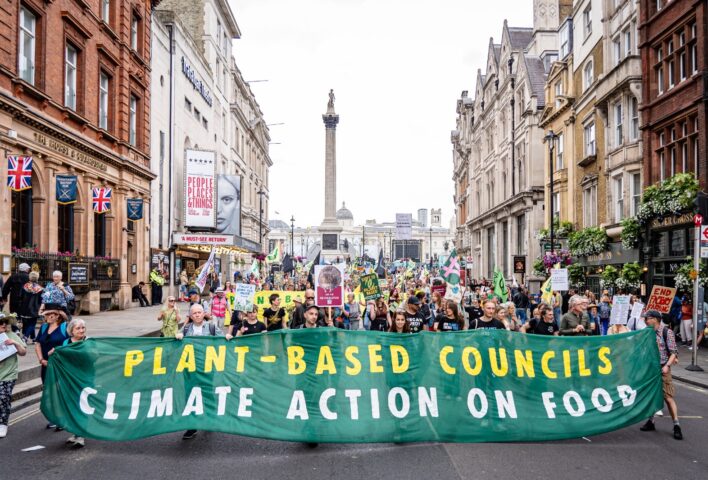
While there are many campaigns looking to move us closer to the plant-based future we want, one campaign has a surprising target: local councils.
Plant-Based Councils is a campaign run by Animal Rising, an animal activist movement which runs a series of campaigns working to get institutions to move us closer towards a plant-based food system.
Plant-Based Councils’ stated aim is to get councils to switch to 100% plant-based catering for their internal meetings and events. The point of this, it says, is to normalise plant-based eating, and get councils to lead the way on climate action.
But why are councils so important?
“Councils are really key institutions,” explains Michaela Andrews, campaign lead for Plant-Based Councils. “They have a lot of influence in their local areas on their constituents, so when they make a change like this it can send out a powerful, simple message that this is the way we should be heading in as a society.
“Not many councils have a lot of catering these days – it could just be a couple of buffets throughout the entire year or switching out dairy milk for plant milks for tea and coffee. Part of the argument for this campaign is that it is something that is so simple and such an easy little change to make… It doesn’t change too much for councils on a day-to-day basis, but it sends out this really powerful, symbolic message.”
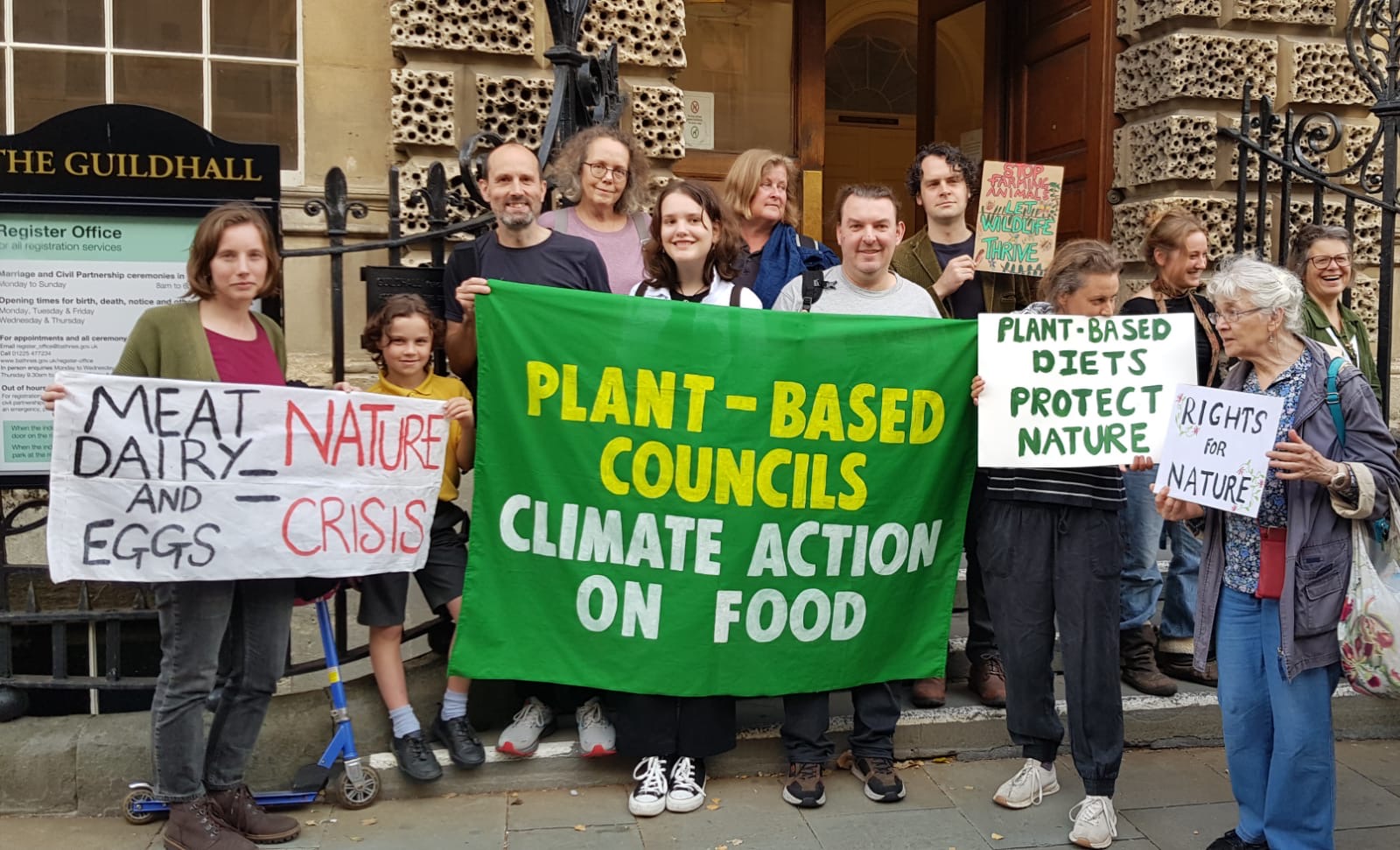
Plant-Based Councils activists outside a full council meeting in Bath. Credit: Plant-Based Councils
Small ask, big impact
Asking councils to change their in-house catering may seem like a modest ask, given the sprawling nature of their responsibilities like running schools and care homes. The idea behind this is that it is easier to ask for councils to make this change for their own catering first before moving on to the services they oversee, which is a more complex and incremental change.
For people who aren’t vegetarian or vegan, Plant-Based Councils’ call to move to a 100% plant-based model looks like a bold step. The point is to encourage councils to be brave and set an example; this, Andrews explains, helps raise awareness of our need to transform our food system and may eventually help institutions make wider-reaching changes.
“30% meat reduction by 2030 is quite often something that councils are aiming for, and we’re trying to get across the message that, well, that’s not good enough really,” Andrews explains. “Going for a completely plant-based food system is one of the key solutions to the climate crisis. We want that message to become more widespread and more accepted.
“If a council goes 100% plant-based, that is such a bold move, it’s very controversial. It’s much more likely to be newsworthy, and therefore to get the message far and wide into the public discourse and create debate and conversation. It’s much more about the wider impact it can have rather than the specific change to the council.”
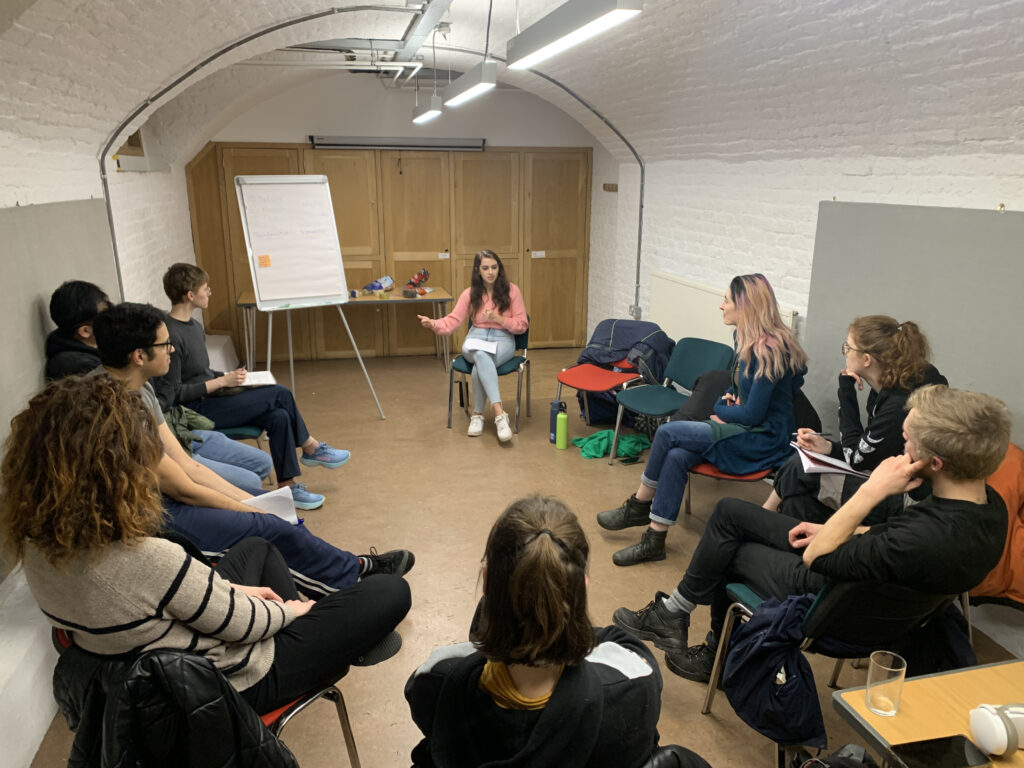
A Plant-Based Councils regional training session in London. Credit: Plant-Based Councils
‘We need to make more responsible choices’
A lot of Plant-Based Councils’ work involves approaching councillors, building relationships with them and educating them on why getting their council to change its catering is so important. The campaign especially targets councillors who might consider putting a motion forward to make the change, especially those from parties running their council who have more influence.
So far, the campaign has seen seven councils across England switch to 100% plant-based catering, three just in the last half year. One of these is Nottingham City Council, which made the switch at the end of September 2024. In October, the council also spent a week promoting daily milk alternatives at its office café. Andrews says this saw plant milk sales rise at the council and is a move the council is considering again in the future.
Nottingham’s example follows in the footsteps of councils who have previously been brave enough to make the switch. In March 2022, Oxfordshire County Council announced that it would start serving plant-based food at all council-catered events, with a priority on sourcing this food locally. The council also planned to explore plant-based options for school menus.
The council stressed it was not trying to convert people to eating only plant-based food, calling it a ‘huge over-simplification of what we are doing’. Instead, it said, the move would help tackle climate change, reduce food waste and support healthy eating, given the council’s responsibility for public health.
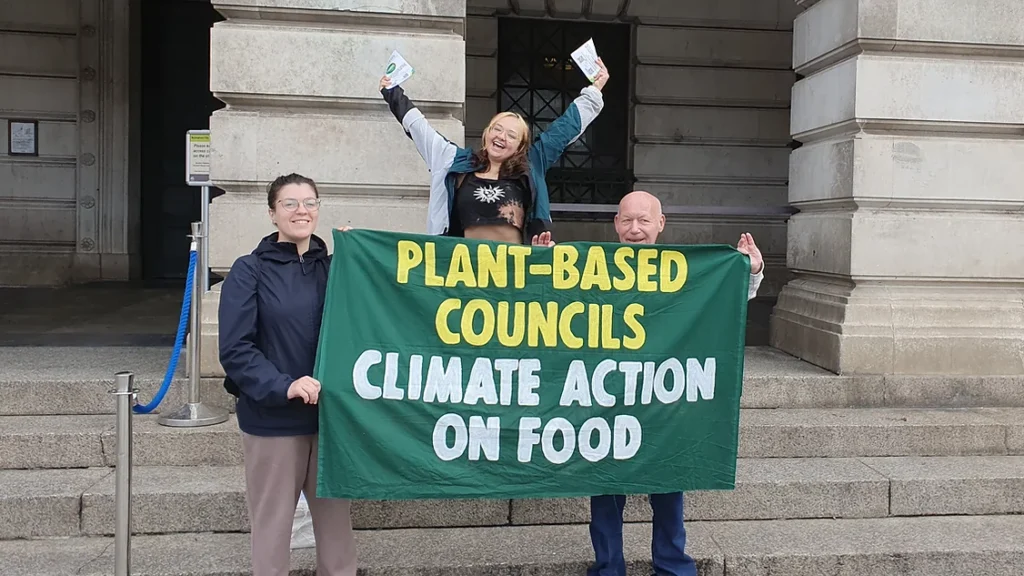
Plant-Based Councils campaigners celebrating outside Nottingham City Council after it decided to make its catering 100% plant-based. Credit: Plant-Based Councils
“A consensus has grown in the UK that we need to eat less meat than we do presently,” Cllr Liz Leffman, Leader of Oxfordshire County Council, said at the time. “We need to reduce carbon emissions and be more sustainable in food production. Once that is allied to good public health advice that eating less meat and more fruit and vegetables in our diet will improve our overall health, a powerful logic begins to form.
“All we are doing with our local policy is highlighting the benefits of including more plant-based food in our diet – both to ourselves and our children, our agriculture and our planet.”
Andrews admits that a lot of councils are not on board right away with Plant-Based Councils’ ask. Many councils’ climate targets are focused primarily on transport, so campaigners do have a battle on their hands to convince them why food is so important as well. Part of it is tackling the subject of personal choice, and convincing councils of the moral argument for making the switch to plant-based food.
“What we say to that is plant-based food is sustainable if you’re a meat-eater or not. Personal choice is important, but it also gets to a point where we need to make more responsible choices as well. If the choice that we’re making is causing total devastation to the planet, maybe that’s a choice that we need to be making less.”
Future Plans
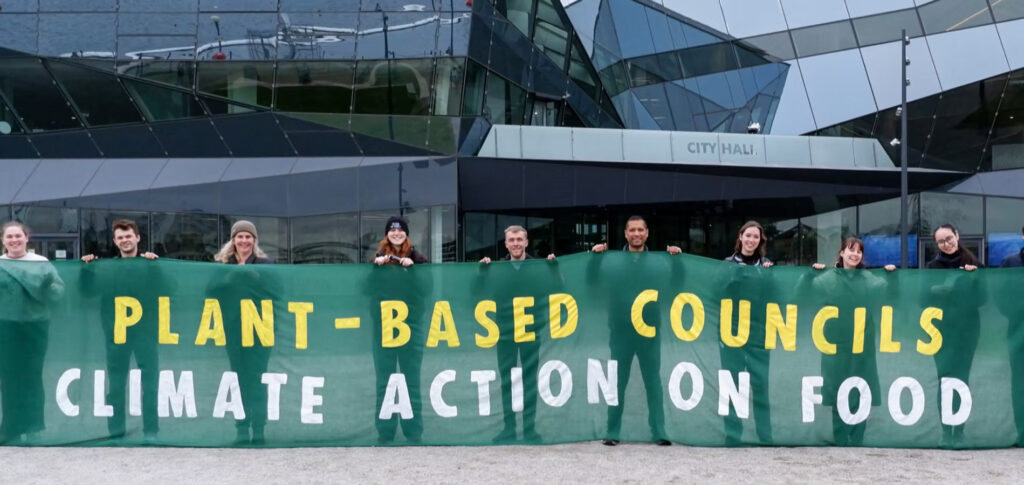
Plant-Based Councils plans to eventually target the London Assembly, which sits at City Hall. Credit: Plant-Based Councils
Over the next year, Plant-Based Councils wants to have 100 teams working with councils in England – double their current total – and have 15 more councils make the switch to 100% plant-based catering. The campaign also plans to launch campaigns in Scotland and Wales, with a view to targeting the devolved parliaments in those nations as well as the London Assembly.
“One day, we might go on and target the national government to follow the lead of councils,” Andrews says, floating the idea of a ‘plant-based parliament’. “That’s the long-term vision, but next year is very much going to be about expanding further and getting more wins.”
Andrews emphasises that Plant-Based Councils is run by a range of ordinary people, covering all walks of life with no previous experience of activism. It just goes to show that anyone can act to bring a plant-based future forward in their local communities, one town or city at a time.
“A lot of people feel really disillusioned when it comes to the climate crisis, and veganism being still such a niche thing still,” Andrews concludes. “This is a great way to have the opportunity to meet more like-minded people, really work on creating change and feel more empowered that you can make a difference.
“I think this campaign has really proven that we can influence politics. We can create institutional transformation.”
You can find out more about Plant-Based Councils’ work by heading to www.plantbasedcouncils.org.
join us for £3/month to read more articles!

To read more fantastic articles like this, please sign up to become a member of the Vegetarian Society and get your copy of our latest magazine! Joining us costs as little as £3 a month.
